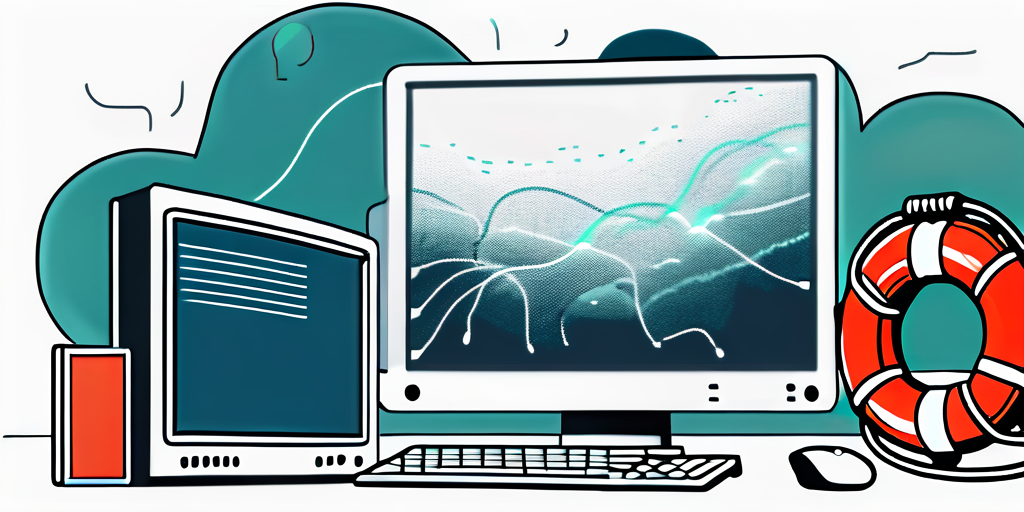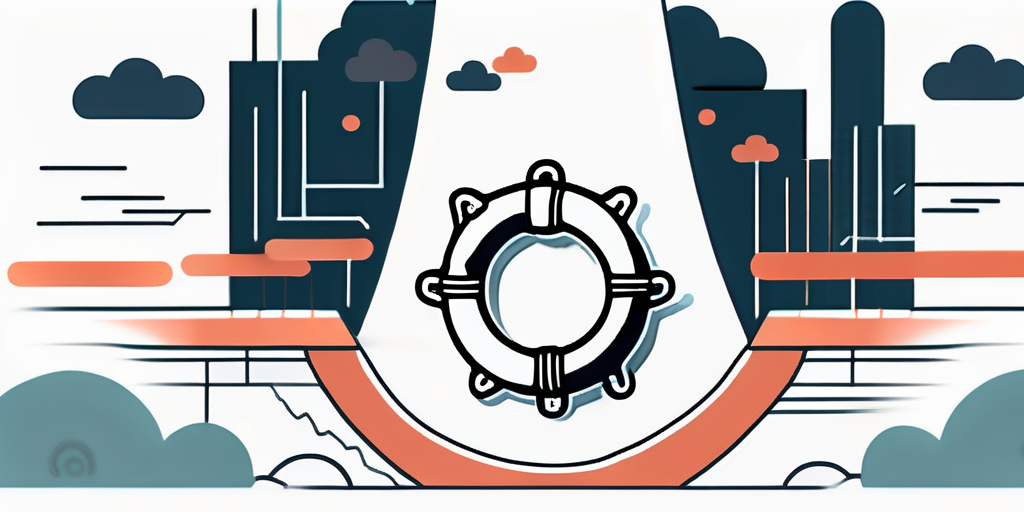
In today’s ever-evolving world, the need for remote interviews has become increasingly vital. Companies and organizations worldwide now strive to embrace virtual recruitment practices as a means to support their customers effectively. This article aims to shed light on the understanding, preparation, and conduction of successful remote interviews, as well as providing insights on overcoming potential challenges and post-interview follow-up.
Understanding the Need for Remote Interviews
The Shift to Virtual Recruitment
The shift from traditional in-person interviews to remote interviews has been accelerated by various factors. The global pandemic, for instance, has necessitated social distancing measures, making face-to-face interviews impractical or even impossible. Additionally, organizations are recognizing the significant advantages remote interviews offer, such as enhanced efficiency, expanded talent pools, and reduced travel costs.
As the world grapples with the challenges posed by the COVID-19 pandemic, remote interviews have emerged as a crucial tool in the recruitment process. With travel restrictions and lockdown measures in place, employers and candidates alike have had to adapt to a new way of conducting interviews. The reliance on technology has become more pronounced, with video conferencing platforms becoming the go-to solution for connecting employers with potential hires.
One of the key benefits of remote interviews is the elimination of geographical limitations. In a globalized world, organizations are no longer restricted to hiring talent within their immediate vicinity. With remote interviews, employers can connect with candidates from around the world, opening up a broader range of potential hires. This not only increases the diversity of the applicant pool but also allows companies to tap into talent that they may not have had access to otherwise.
Moreover, remote interviews save time and resources, streamlining the recruitment process. In the traditional model, employers would have to allocate significant resources to bring candidates in for in-person interviews. This would involve coordinating travel arrangements, booking accommodation, and dedicating valuable time to conducting interviews. With remote interviews, these logistical challenges are minimized, allowing employers to focus their efforts on evaluating candidates’ skills and qualifications.
Furthermore, remote interviews provide flexibility for both employers and candidates. Scheduling conflicts are a common issue in the recruitment process, often resulting in delays and missed opportunities. However, with remote interviews, the need for candidates to travel to a specific location is eliminated. This not only reduces scheduling conflicts but also accommodates candidates from different time zones. Employers can conduct interviews at a time that suits both parties, ensuring a smoother and more efficient process.
Benefits of Remote Interviews
Remote interviews offer several benefits for both employers and candidates. Firstly, they eliminate geographical limitations, allowing employers to connect with talent from around the world. This opens up a broader range of potential candidates and increases the diversity of the applicant pool. Secondly, remote interviews save time and resources, streamlining the recruitment process. Lastly, they provide flexibility for both parties involved, reducing scheduling conflicts and accommodating different time zones.
With the rapid advancement of technology, remote interviews have become an integral part of the modern recruitment landscape. As organizations continue to adapt to the changing circumstances brought about by the pandemic, remote interviews are likely to remain a prominent feature in the hiring process. By embracing this shift, employers can tap into a global talent pool, save valuable time and resources, and ensure a more flexible and efficient recruitment process.
Preparing for a Remote Interview
Technical Requirements and Setup
Prior to conducting a remote interview, it is crucial to ensure that all technical requirements are met. This includes having a reliable internet connection and access to a suitable video conferencing platform. Familiarize yourself with the chosen platform’s features to avoid any difficulties during the interview. Additionally, test your microphone and webcam to ensure clear audio and video quality.
When it comes to technical requirements, it’s not just about having the necessary equipment. It’s also important to have a backup plan in case of any technical difficulties. Consider having a secondary internet connection available, or a backup device with a webcam and microphone. This way, you can quickly switch to an alternative setup if needed, ensuring that the interview can proceed smoothly.
Another aspect to consider is the lighting in your interview space. Good lighting can make a significant difference in how you appear on camera. Natural light is ideal, so try to position yourself near a window. If that’s not possible, invest in a good quality desk lamp or ring light to ensure that you are well-lit and easily visible to the candidate.
Creating a Professional Environment
A professional environment is essential to create a positive impression during a remote interview. Choose a quiet, well-lit space free from distractions. Consider your background and ensure it is clean, clutter-free, and professional-looking. Dress appropriately as you would for an in-person interview, as it helps both you and the candidate to maintain a sense of professionalism.
When it comes to creating a professional environment, it’s not just about the physical space. It’s also important to establish a professional demeanor throughout the interview. This includes maintaining good posture, making eye contact, and actively listening to the candidate. Remember to speak clearly and confidently, as your tone and body language can greatly impact the impression you make.
In addition to the physical environment, consider the virtual environment as well. Customize your video conferencing platform settings to display a professional profile picture or use a virtual background that aligns with the nature of the interview. This can help create a cohesive and professional atmosphere, even in a remote setting.
Conducting a Successful Remote Interview
Remote interviews have become increasingly common in today’s digital age. Whether you are a seasoned interviewer or new to the process, it is crucial to follow certain best practices to ensure a successful outcome. In this article, we will explore some key tips and strategies for conducting a remote interview that will help you make informed hiring decisions.

Establishing a Friendly and Welcoming Atmosphere
One of the first steps in conducting a remote interview is to establish a friendly and welcoming atmosphere. This is particularly important in remote interviews, as it can help mitigate any candidate nervousness and create a more comfortable environment for both parties involved.
Start by introducing yourself and providing a brief overview of the interview process. This will help the candidate understand what to expect and feel more at ease. Additionally, take a moment to engage in some small talk to break the ice. This can be as simple as asking about their day or discussing a shared interest. Remember, building rapport is essential in creating a positive interview experience.
Maintaining Eye Contact
When conducting a remote interview, it can be challenging to maintain eye contact. However, it is crucial to make an effort to look directly into the camera rather than at the screen. This will create the illusion of eye contact and help establish a connection with the candidate.
By maintaining eye contact, you convey attentiveness and interest in what the candidate has to say. It also shows respect and professionalism, which can positively influence the candidate’s perception of the interview process and your organization.
Active Listening and Asking Follow-Up Questions
Active listening is a fundamental skill that interviewers should possess, regardless of the interview format. However, in remote interviews, it becomes even more critical. Without the benefit of face-to-face interaction, it is essential to actively listen to the candidate’s responses and ask follow-up questions to delve deeper into their qualifications and experience.
Take the time to fully understand the candidate’s responses and ask for clarification if needed. This demonstrates your genuine interest in their background and allows you to assess their suitability for the role more effectively. Additionally, asking follow-up questions can provide the candidate with an opportunity to expand on their previous answers and showcase their expertise.
Ensuring Effective Communication
Clear communication is key to a successful remote interview. As an interviewer, it is essential to speak slowly and articulate your words to ensure the candidate understands you clearly. Avoid using jargon or technical terms that may confuse the candidate. Instead, use simple and concise language that conveys your message effectively.
Another crucial aspect of effective communication in remote interviews is allowing the candidate to finish speaking before responding. This helps avoid interruptions and ensures that the candidate feels heard and valued. It also allows you to gather all the necessary information before formulating your response.
Remember, active listening and providing thoughtful responses demonstrate your engagement and professionalism. By actively engaging in the conversation, you create a positive impression and make the candidate feel more comfortable sharing their experiences and qualifications.
In conclusion, conducting a successful remote interview requires careful planning and adherence to best practices. By establishing a friendly and welcoming atmosphere, maintaining eye contact, actively listening, and ensuring effective communication, you can conduct remote interviews that yield valuable insights and help you make informed hiring decisions.
Overcoming Challenges in Remote Interviews
In today’s digital age, remote interviews have become increasingly common. They offer convenience and flexibility for both employers and candidates. However, like any form of communication conducted online, remote interviews come with their own set of challenges. In this article, we will explore some of the common obstacles faced during remote interviews and provide strategies to overcome them.

Dealing with Technical Difficulties
Technical difficulties are not uncommon during remote interviews. From poor internet connections to software glitches, these issues can disrupt the flow of the interview and create frustration for both parties involved. To overcome such challenges, it is essential to have backup options in place.
One effective strategy is to establish alternative communication channels. For example, if video calls fail, you can switch to a phone interview or utilize messaging platforms. By having multiple options available, you can ensure that the interview can proceed smoothly regardless of technical issues.
Another crucial aspect is communication. When faced with a technical problem, it is important to communicate openly and transparently with the candidate. This demonstrates your ability to adapt and problem-solve, which are valuable qualities in any professional setting. By keeping the candidate informed and involved in the troubleshooting process, you can minimize frustration and maintain a positive impression.
Maintaining Engagement and Rapport
Building and maintaining engagement and rapport during a remote interview is vital. Without physical cues and face-to-face interaction, it can be more challenging to establish a connection with the candidate. However, with the right approach, you can foster a sense of rapport and create a positive interview experience.
One effective strategy is to actively listen to the candidate. Pay close attention to their responses, and show genuine interest in what they have to say. By demonstrating active listening skills, you not only make the candidate feel valued but also gain valuable insights into their qualifications and personality.
Expressing empathy is another powerful tool. Remote interviews can be nerve-wracking for candidates, especially if they are unfamiliar with the format. By acknowledging their concerns and offering reassurance, you can help alleviate their anxiety and create a more relaxed atmosphere.
Engaging the candidate with open-ended questions is also crucial. These types of questions encourage insightful conversations and allow the candidate to showcase their knowledge and experience. By asking thought-provoking questions, you can delve deeper into their qualifications and gain a better understanding of their potential fit within your organization.
In conclusion, remote interviews present unique challenges that require careful consideration and preparation. By having backup options for technical difficulties and employing strategies to maintain engagement and rapport, you can conduct successful remote interviews that yield valuable insights into candidates’ qualifications and potential.
Post-Interview Follow-Up

Providing Feedback and Next Steps
After the remote interview concludes, it is essential to promptly provide feedback to the candidate. Constructive feedback allows candidates to improve and grow, while also fostering transparency in the recruitment process. This feedback can include specific areas where the candidate excelled, as well as areas where they can further develop their skills. By providing detailed feedback, you not only support the candidate’s professional growth but also demonstrate your commitment to their success.

In addition to providing feedback, it is crucial to clearly communicate the next steps in the hiring process. This includes informing the candidate about the timeline for decision-making and any additional requirements they may need to fulfill. By setting clear expectations, you help the candidate understand the recruitment process and reduce any uncertainty they may have.
Continual Support for Remote Interview Processes
Supporting your customers throughout the remote interview process is crucial to ensure a positive experience. Beyond providing feedback and communicating next steps, there are other ways to enhance the remote interview process.
One important aspect is establishing feedback channels for candidates to express any concerns or feedback regarding the remote interview process. This can be done through surveys, email communication, or even dedicated feedback sessions. By actively seeking feedback, you create an environment where candidates feel heard and valued, leading to a stronger candidate experience.
Furthermore, it is essential to continually evaluate and adapt your remote interview strategy based on candidate feedback and emerging technologies. As the remote work landscape evolves, new tools and techniques may emerge that can enhance the interview process. Staying up to date with these advancements and incorporating them into your practices can help you provide the best possible support to candidates.
Moreover, consider providing resources and guidance to candidates to help them navigate the remote interview process successfully. This can include tips on setting up a professional virtual background, optimizing lighting and sound quality, and managing potential technical issues. By equipping candidates with the knowledge and tools they need, you empower them to perform at their best during remote interviews.
In conclusion, remote interviews have become an integral part of the recruitment process, serving as a means to support customers effectively. By understanding the need for remote interviews, preparing adequately, conducting successful interviews, overcoming challenges, and providing post-interview follow-up, companies can navigate the virtual recruitment landscape with confidence. Embracing this new paradigm and continually supporting customers throughout the process will drive better recruitment outcomes and ensure satisfaction for all parties involved.